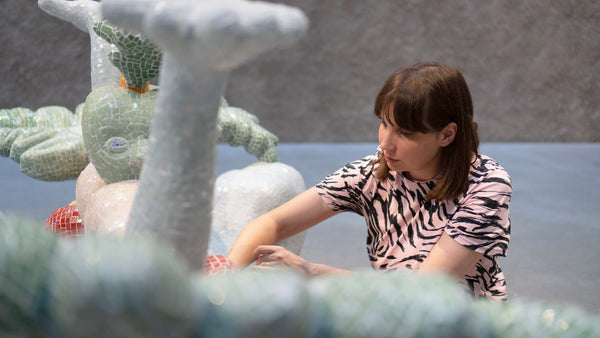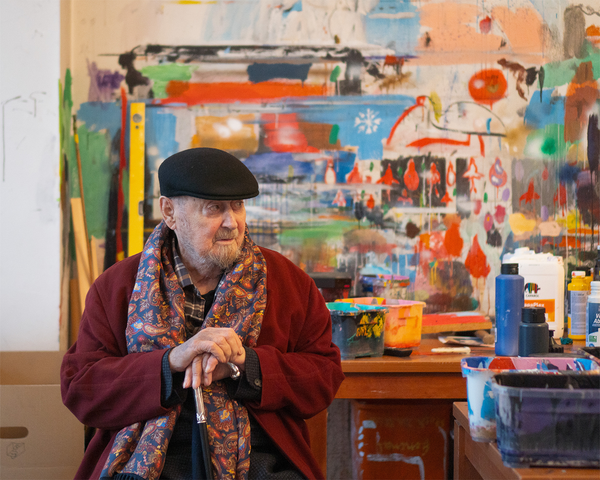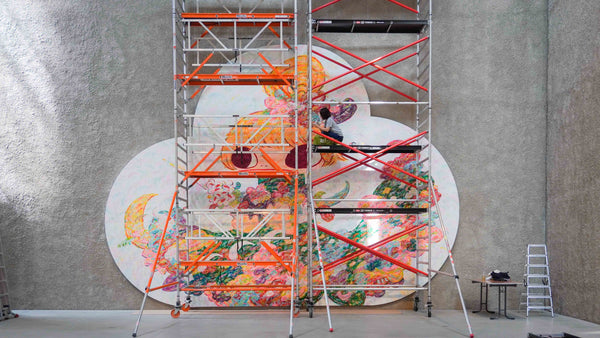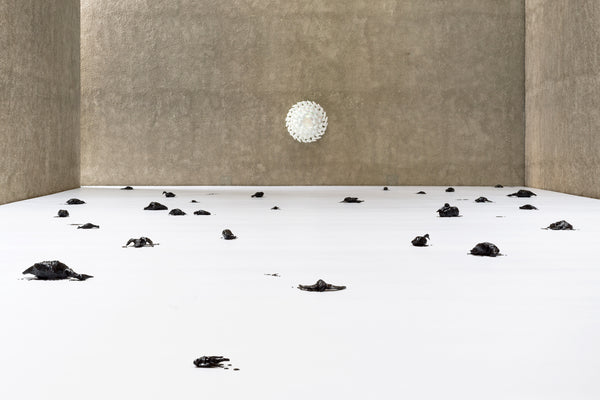MONIRA
AL
QADIRI
Petroleum
Poetry
21 February 2024
"At the same time, my art is seductive but also horrible.“ – Monira Al Qadiri
"At the same time, my art is seductive
but also horrible.“ – Monira Al Qadiri
Ahead of her exhibition, USURPER, currently on view in the Nave of St. Agnes, KÖNIG GALERIE visited Monira Al Qadiri in her studio in Berlin to discuss her artistic practice and the concept of the show.
Originally from Kuwait, the artist has lived through the Gulf War and has witnessed the destruction of this conflict and environmental catastrophe firsthand, an experience that has impacted her works ever since. Al Qadiri’s practice is highly personal, carrying emotional experiences from her own life during war, while questioning power dynamics and the exploitation of petroleum. Her large-scale installations and sculptures oftentimes appear shiny and aesthetic but carry the weight of personal war trauma: “My art always hides this tragic character, even if it’s colorful and wonderful on the outside, it always has this dark underbelly”, Al Qadiri states. By intertwining her individual experiences with historical and political motifs, the artist creates immediate closeness, blending the boundary between herself and her viewers.
With USURPER, the artist boldly tells another chapter of the Gulf War, revolving around power, violence, the depletion of natural resources and possible future beyond the era of petroleum.






